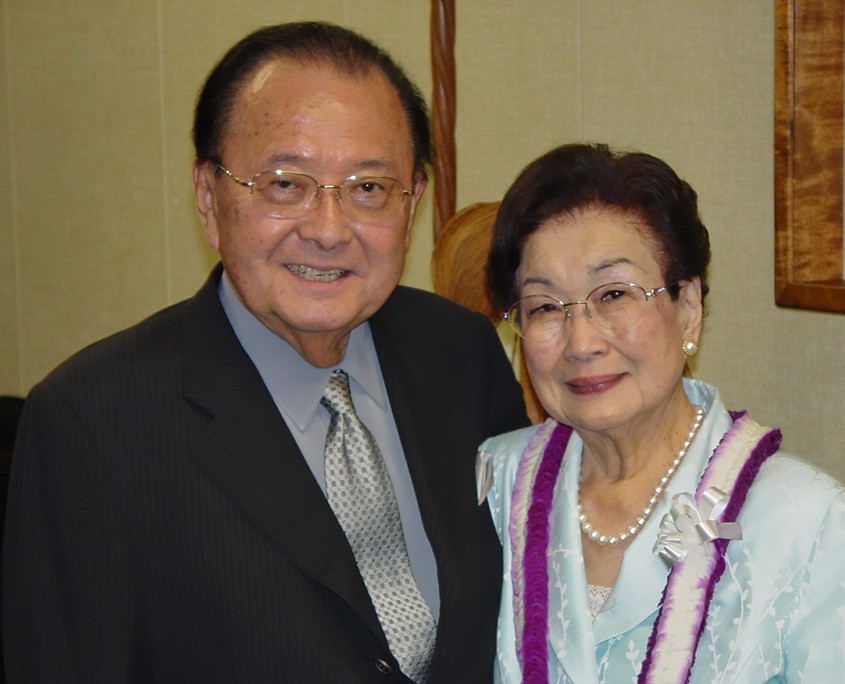
photo credit: UH Foundation

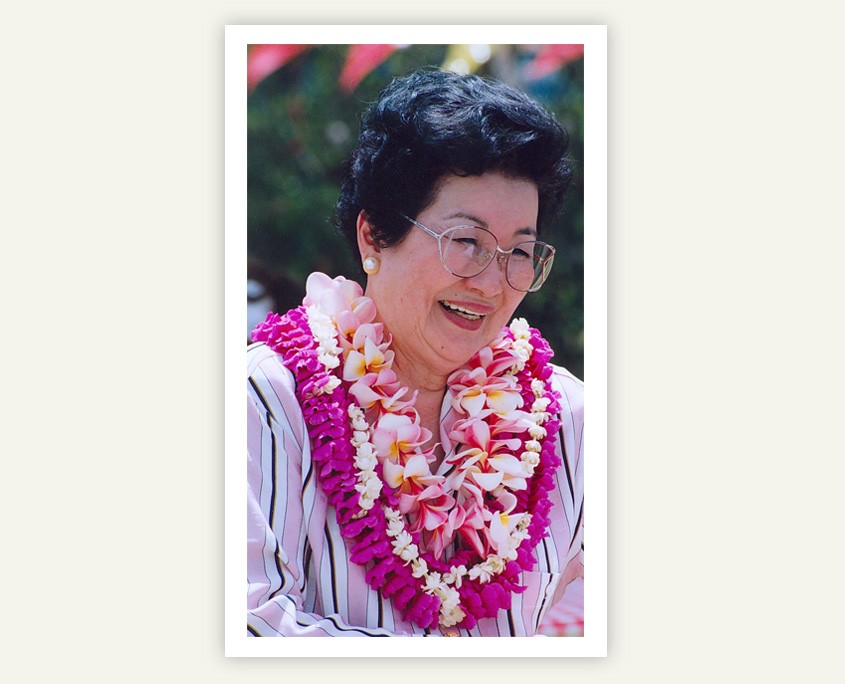
photo credit: UH Foundation

photo credit: UH Foundation
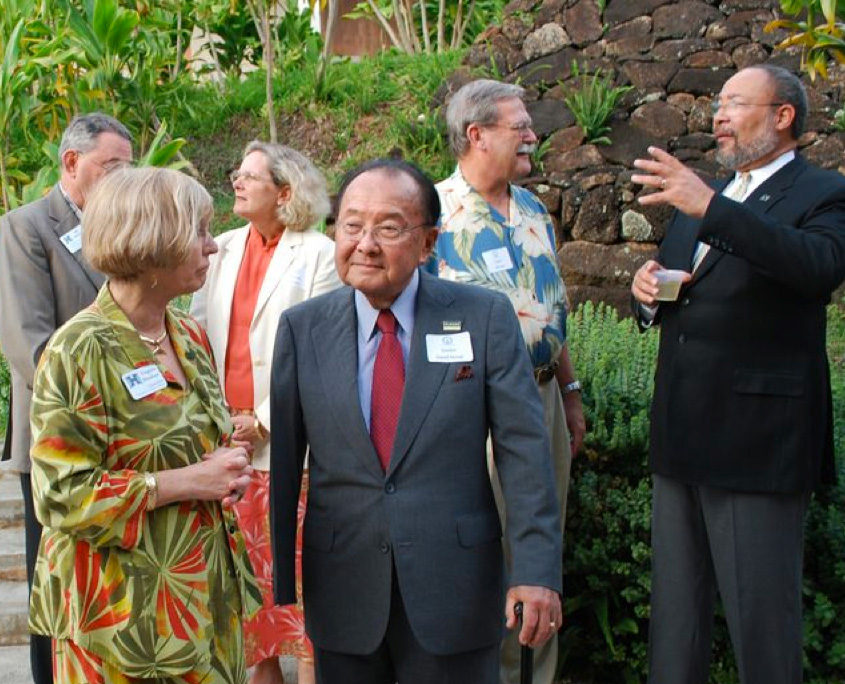
photo credit: UH Foundation
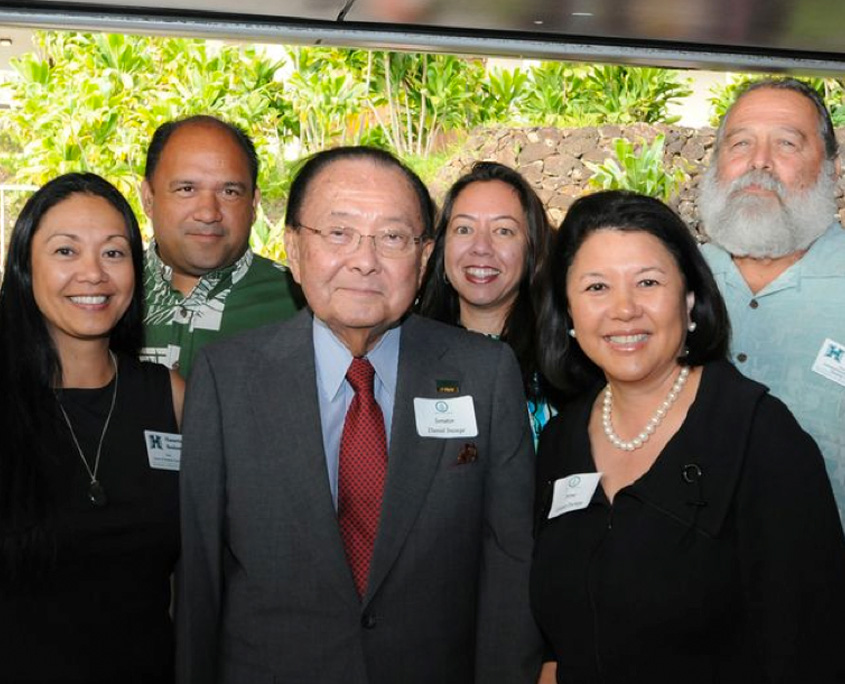
photo credit: UH Foundation
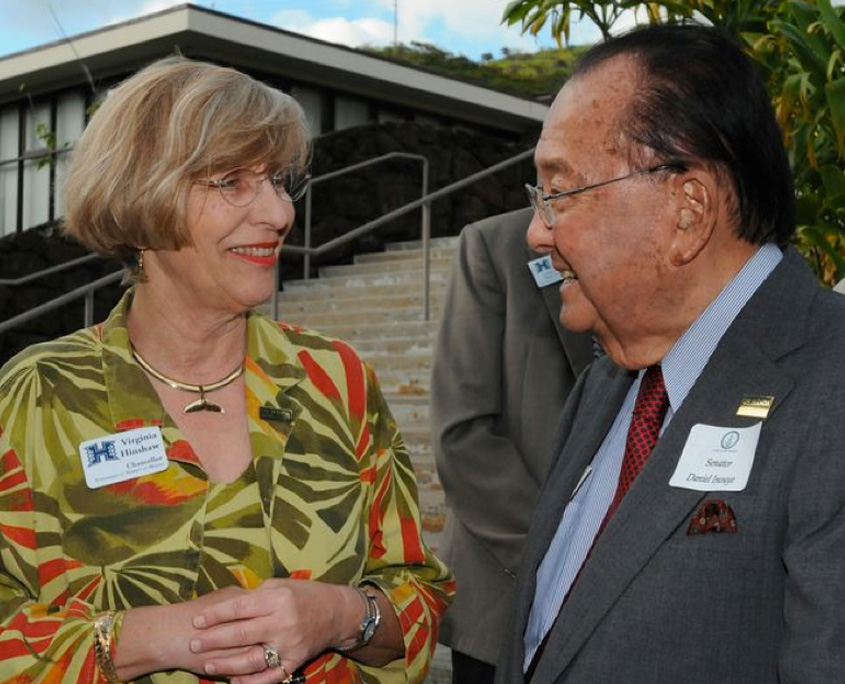
photo from www.govtrack.us

Perhaps no one has done more to ensure the economic, educational, and cultural vitality of Hawaiʻi than the late U.S. Senator Daniel Inouye. A decorated war hero of the famed 442nd Battalion in World War II, he returned to graduate from the University of Hawaiʻi in 1950. In 1959, he became Hawaiʻi’s first congressman and served in the U.S. Senate until he passed away in 2012.
Senator Inouye’s accomplishments are innumerous and unprecedented. As the first Japanese American elected in the House and Senate, Inouye fought for integrity and openness in the government, famously at Watergate, and many times afterwards. He labored to make democracy work and this Chair honors that legacy.
Likewise, Margaret Awamura Inouye’s life is representative of her enduring commitment to education. Maggie Inouye received a degree in education at the University of Hawai‘i, then a Master of Arts degree at Columbia University before meeting and marrying her husband. In 1964, they had son, Ken Inouye. She financially supported her husband through his educational career, working as an instructor at the University of Hawai‘i Laboratory School, and tirelessly campaigned by his side during his political career. She was a central feature in Senator Inouye’s success and within the community of Hawai‘i before her passing in 2006.
Until the establishment of this program, Senator Inouye had resisted other attempts on the use of his name in permanent tribute. However, as alumni and long-time supporters—and in Maggie Inouye’s case, a former speech and linguistics instructor—of the University of Hawai‘i, they felt that their contributions would be best reflected by an endowed chair. He said of the chair: “Maybe I’m old and sensitive, but I hate to have people suggest that I work hard for a certain project because I wanted my name emblazoned on a wall. In this case, you won’t see my name put on some plaque. It will be administered by the university.” Today, there is no plaque on a wall. Instead the University of Hawai‘i, its students, and the community at large have benefitted from the invaluable experiences that the Chair in Democratic Ideals has created by bringing in leading scholars, artists, and other public figures to share their work and knowledge.
In the coming years, the soon-to-be-established Daniel K. Inouye Center for Democratic Leadership—an exciting initiative being led by the university, community leaders, and by the senator’s family and closest associates—will ensure that this chair dedicated to democratic ideals has an even greater profile and impact.

